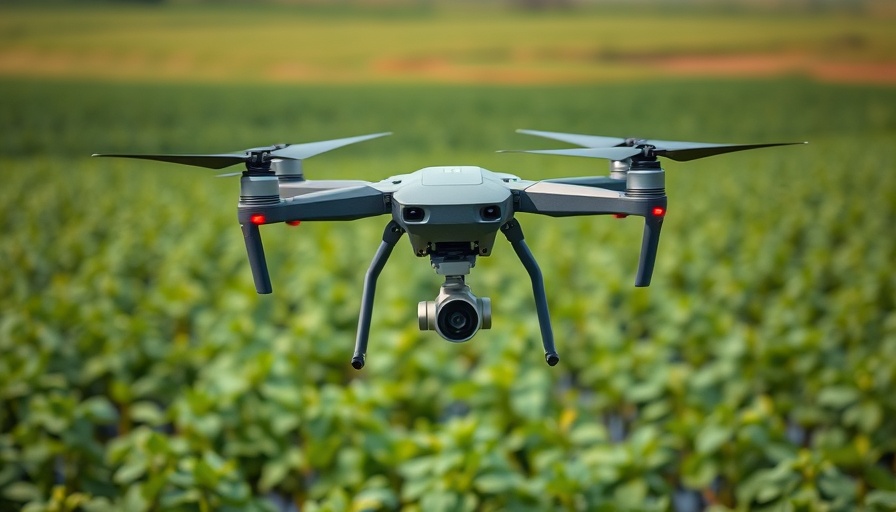
Drones Become Allies in the Fight Against Mosquito-Borne Diseases
Across the globe, drones are redefining how we tackle one of humanity's oldest foes: mosquitoes. Emerging from various countries including Ghana, Kenya, and Poland, these innovative devices are equipped to detect and eliminate mosquito breeding grounds, a much-needed advance in our ongoing war against mosquito-borne diseases like malaria and yellow fever. With a staggering annual death toll of approximately 700,000 attributed to these diseases, it is imperative that new methods are employed to curb their impact.
The Economic Shift: Affordable Technologies for Communities
The introduction of drone technology for mosquito control has seen costs drop significantly, around 20% since 2018. This reduction has made these technologies not only accessible but also cheaper compared to other traditional preventive measures like malaria medication and mosquito-proof bed nets. Yosuke Kaneko, co-founder and CEO of SORA Technologies, emphasizes how this technological marvel could become the cornerstone of malaria prevention strategies in regions heavily afflicted by the disease.
Community Engagement: Building Trust and Efficacy
For drone-assisted mosquito control to be effective, community involvement is crucial. SORA Technologies actively collaborates with local health ministries, community leaders, and drone pilots to ensure that the deployment of drones is understood and embraced by the population. Dr. Peter Okeke, a malaria policy advisor, notes that building this trust ultimately enhances the sustainability and effectiveness of prevention efforts.
A Global Battle: Success Stories from Europe to Africa
Not limited to Africa, Europe has also implemented drone technology for mosquito control. In the humid city of Wroclaw, Poland, drones have been employed for over 27 years to monitor and neutralize mosquito breeding sites. By deploying non-toxic larvicides in high-risk areas, these drones demonstrate the global reach and adaptability of drone technology in pest control.
Choosing Prevention: The Smart Path Forward
As discussions around public health continue, it is essential to consider proactive measures rather than reactive ones. The use of drones for mosquito eradication is a clear example of “smart prevention”—an approach that is proving cheaper, more humane, and ultimately more sustainable than traditional methods of treatment. Every child saved from malaria is a small victory that showcases the profound impact of these technological advances.
In conclusion, drone technology heralds a new era in public health efforts, combining innovation with a human-centered approach to disease prevention. As we embrace these changes, we move towards a healthier future, one where communities can thrive free from the dangers that mosquitoes bring.
 Add Row
Add Row  Add
Add 




Write A Comment